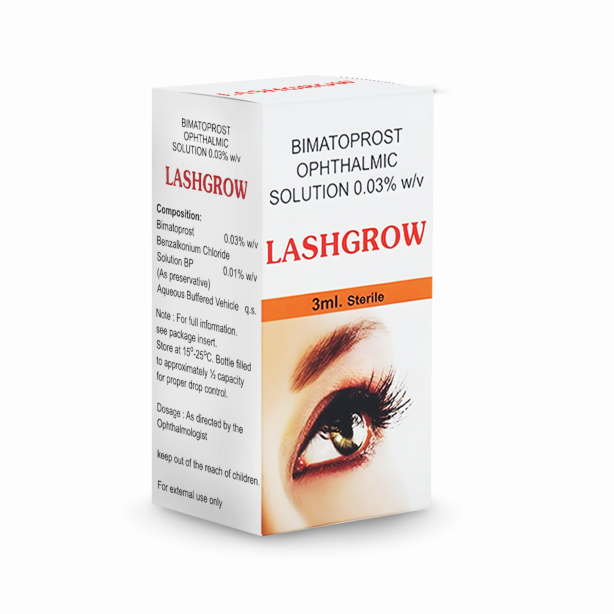Cataract is an eye condition where the eye’s natural lens becomes cloudy, leading to blurred vision.
Cloudiness begins in the early stages of Cataracts and is known as the Incipient Cataract.
However, vision may not be severely compromised during this phase.
Understanding the Incipient stage of Cataract development is essential to safeguard eye health.
This article will focus on the symptoms and treatment available for Incipient Cataracts.
Understanding Incipient Cataracts
Incipient Cataract is the initial stage of age-related Cataracts.
Early diagnosis of Incipient Cataracts is critical for developing medicines and lifestyle changes to manage and reduce their progression.
This phase allows for timely and targeted measures to maintain optimal eye health.
A slit-lamp test or other comprehensive eye exams detect Incipient Cataracts.
If you suspect Incipient Cataracts, consult an eye care professional for personalized guidance.
Save up to 90% on your medicine bills

Careprost 3 ml of 0.03%

Bimat 0.03% w/v

Bimaday 3 ml

Lashgrow 3 ml
Incipient Cataracts symptoms
 Source: pixel_shots
Source: pixel_shotsSymptoms of Incipient Cataracts may not be easily noticeable.
Minor Cataract symptoms, such as minor blurred vision or mild visual discomfort, are common concerns at this stage.
Colors might appear less vibrant, and there could be increased sensitivity to glare.
These symptoms develop slowly, and people may not have major vision problems initially.
Regular eye check-ups are important for early detection, allowing effective management.
Types of Incipient Cataracts
There are three types of Incipient Cataract— Nuclear, Posterior, and Cortical Incipient Cataracts.
Let’s understand these types of Incipient Cataract in detail:
Nuclear Incipient Cataract
Nuclear Cataracts develop at the center of the eye lens.
The incipient stage of this form of Cataract causes changes in the middle region of the lens, compromising its transparency.
The most typical sign of Nuclear Incipient Cataract is gradual vision loss around the center of the eye lens, known as Nuclear Sclerosis.
Posterior Incipient Cataract
Posterior Cataracts grow on the back side of the eye lens. The first stages may not display any known symptoms.
However, these Cataracts usually develop quickly and may have a greater impact on vision over time.
People with Posterior Incipient Cataracts may have difficulty reading, being sensitive to light, and seeing halos around lights.
Cortical Incipient Cataract
Cortical Cataracts are those that form at the borders of the eye lens.
In its early stages, this type of Cataract appears as clouding that begins on the outer edge and proceeds into the center of the lens.
Cortical Incipient Cataract symptoms include minor glare or halos around lights.
Incipient Cataract treatment
 Source: A's_Images
Source: A's_ImagesTreatment for Incipient Cataracts typically involves monitoring the condition’s progression through regular eye exams.
Cataract surgery may not be needed in the initial stage of Incipient Cataract.
Corrective eye lenses, such as UV-protective sunglasses, effectively enhance vision.
They can also reduce the discomfort caused by the early stages of Cataract development.
Managing underlying health conditions like Diabetes can also contribute to better eye health.
However, if ignored, the Incipient Cataract can worsen and lead to more severe stages of age-related or Senile Cataract.
As a result, it is critical to see a doctor for a proper diagnosis and treatment of Incipient Cataracts.
Summing up
Incipient Cataract refers to the early stages of age-related Cataract development.
This stage is frequently unnoticed and can only be diagnosed with extensive eye exams such as slit-lamp testing.
Blurry vision and mild visual discomfort are some of the symptoms of Incipient Cataracts.
There are three types of Incipient Cataract— Nuclear, Posterior, and Cortical Incipient Cataracts.
Using protective eyewear and managing medical conditions such as Diabetes may help in treating Incipient Cataracts.
It is essential to consult a doctor for proper diagnosis and management of the condition.

Frequently Asked Questions
What is an Incipient Cataract?
An Incipient Cataract is the early stage of clouding in the eye’s natural lens.
In this initial phase, the Cataract may not significantly affect vision.
Early detection is vital for managing and slowing the condition’s progression with interventions and lifestyle adjustments.
What is the difference between Incipient Cataract and immature?
Incipient Cataracts refer to the early stage of clouding in the eye’s lens.
Immature Cataracts indicate a more advanced stage where the cloudiness has progressed, affecting vision to a greater extent.
What is age-related to Incipient Cataracts?
Incipient Cataracts are associated with aging, as they develop gradually over time.
Age-related changes in the eye’s lens contribute to the formation of Incipient Cataracts.
It may impact vision as people grow older.
Is surgery required for an Incipient Cataract?
No, surgery is usually not required for Incipient Cataracts.
Cataract formation is in its early stages, and doctors may advise monitoring the eye condition to determine its continued advancement.
However, certain uncommon cases may progress swiftly and necessitate immediate medical attention.
What causes Incipient Cataracts?
Incipient Cataracts develop due to age-related changes in the eye’s lens proteins, causing cloudiness.
Genetics, prolonged sunlight exposure, smoking, and certain medical conditions may contribute to their formation.
Early detection and lifestyle modifications are crucial for managing Incipient Cataracts effectively.
When referencing outside resources, GoodrxMedicine always provides full citations. To learn more about the measures we use to maintain the quality of our content, please review our Content Information Policy.











